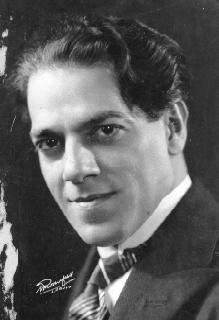
String Quartet No. 3 is the third of seventeen works in the medium by the Brazilian composer Heitor Villa-Lobos, and was written in 1916. A performance lasts approximately twenty-three minutes.

String Quartet No. 7 is the seventh of seventeen works in the genre by the Brazilian composer Heitor Villa-Lobos, written in 1942. With a performance lasting approximately 37 minutes, it is the longest of Villa-Lobos's string quartets

String Quartet No. 11 is a 1947 string quartet, part of a 17-work series in the medium by Brazilian composer Heitor Villa-Lobos. A performance lasts approximately 27 minutes.

String Quartet No. 13 is one of a series of seventeen works in the medium by the Brazilian composer Heitor Villa-Lobos, and was written in 1951. A performance of it lasts approximately twenty minutes.

String Quartet No. 16 is the penultimate of seventeen quartets by the Brazilian composer Heitor Villa-Lobos, and was written in 1955. A performance lasts approximately twenty minutes.

String Quartet No. 17 is the last of seventeen quartets by the Brazilian composer Heitor Villa-Lobos, and was written in 1957. A performance lasts approximately twenty minutes.

Chôros No. 10 is a work for chorus and orchestra written in 1926 by the Brazilian composer Heitor Villa-Lobos. It is part of a series of fourteen numbered compositions collectively titled Chôros, ranging from solos for guitar and for piano up to works scored for soloist or chorus with orchestra or multiple orchestras, and in duration up to over an hour. Chôros No. 10 is of moderate length, one performance recorded by the composer lasting just under thirteen minutes.

Chôros No. 11 is a work for piano and orchestra written in 1928 by the Brazilian composer Heitor Villa-Lobos. It is part of a series of fourteen numbered compositions collectively titled Chôros, ranging from solos for guitar and for piano up to works scored for soloist or chorus with orchestra or multiple orchestras. Chôros No. 11 is the longest in the series, a performance lasting over an hour.

Chôros No. 9 is an orchestral work written between 1929 and 1942 by the Brazilian composer Heitor Villa-Lobos. It is part of a series of fourteen numbered compositions collectively titled Chôros, ranging from solos for guitar and for piano up to works scored for soloist or chorus with orchestra or multiple orchestras, and in duration up to over an hour. A recorded performance of Chôros No. 9 made by the composer lasts almost 28 minutes.

Chôros No. 6 is an orchestral work written between 1925 and 1942 by the Brazilian composer Heitor Villa-Lobos. It is part of a series of fourteen numbered compositions collectively titled Chôros, ranging from solos for guitar and for piano up to works scored for soloist or chorus with orchestra or multiple orchestras, and in duration up to over an hour. Chôros No. 6 is one of the longer compositions in the series, lasting about 25 minutes in performance.

Chôros No. 8 is a work for orchestra and two pianos, written in 1925 by the Brazilian composer Heitor Villa-Lobos. It is part of a series of fourteen numbered compositions collectively titled Chôros, ranging from solos for guitar and for piano up to works scored for soloist or chorus with orchestra or multiple orchestras, and in duration up to over an hour. A recording of Chôros No. 8 conducted by the composer lasts 22 minutes.

Introdução aos Chôros: Abertura, is a composition for guitar and orchestra by the Brazilian composer Heitor Villa-Lobos, composed in 1929 as an overture to precede a complete performance of his series of fourteen Chôros. A performance of just the Introdução lasts about thirteen minutes.

Symphony No. 1O Imprevisto is a composition by the Brazilian composer Heitor Villa-Lobos, written in 1916. A performance lasts about twenty-five minutes.

Symphony No. 6Sobre a linha das montanhas do Brasil is a composition by the Brazilian composer Heitor Villa-Lobos, written in 1944. It lasts about twenty-five minutes in performance.

Uirapuru is a symphonic poem or ballet by the Brazilian composer Heitor Villa-Lobos, begun as a revision of an earlier work in 1917 and completed in 1934. A recording conducted by the composer lasts 20 minutes and 33 seconds.

The Piano Concerto No. 4, W505, is a composition for piano and orchestra by the Brazilian composer Heitor Villa-Lobos, written in 1952. A performance lasts about 27 minutes.

Piano Concerto No. 1, W453, is a composition for piano and orchestra by the Brazilian composer Heitor Villa-Lobos, written in 1945. A performance lasts about 38 minutes.

The Piano Concerto No. 5, W 521, is a piano concerto by the Brazilian composer Heitor Villa-Lobos, written in 1954. One performance recorded under the composer's baton lasts 18 minutes, 48 seconds.

The Piano Concerto No. 3, W512, is a composition for piano and orchestra by the Brazilian composer Heitor Villa-Lobos, written in 1952–57. A performance lasts about 26 minutes.

The Guitar Concerto, W501, is a work for solo guitar and small orchestra written by the Brazilian composer Heitor Villa-Lobos in Rio de Janeiro in 1951. A performance lasts about 18 minutes.





